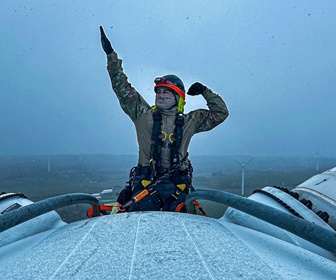A new report commissioned by the American Clean Power Association (ACP) confirms what other scientific bodies have underscored: Climate change is having a far greater impact on the ocean and whale habitats than development of energy projects.
According to the study, Oceanographic Effects of Offshore Wind Structures and Their Potential Impacts on the North Atlantic Right Whale and Their Prey, hydrodynamic effects that occur naturally in the ocean and from climate change are likely to dwarf any possible effects that offshore wind turbines have on the flow of ocean water – and the resulting effects on the availability of prey for the North Atlantic Right Whale (NARW).
The report, written by scientists with AKRF, Rutgers University and the Bigelow Laboratory for Ocean Sciences, and reviewed by independent experts, investigates an issue raised by federal regulators to determine what, if any, impacts offshore wind farms may have on plankton, a key microscopic food source for the NARW. The report authors concluded that natural and seasonal variation have, by far, a greater impact on ocean hydrodynamics than offshore wind development. Another major influence identified in the report is climate change.
The report found that offshore wind turbines may even have positive effects on the prey species that are important to the NARW by enhancing nutrient mixing in whale habitats and encouraging more prey production.
The report’s findings are consistent with a recently released report prepared independently by the National Academies of Sciences, Engineering, and Medicine (NASEM), which found evidence to suggest that offshore wind turbines could have either a positive, neutral, or negative effect on NARW prey availability.
These two publications collectively indicate that there is not enough evidence to suggest that offshore wind turbines have a negative impact on NARW prey availability. ACP calls on federal regulators to use these findings to help clear permitting hurdles currently holding up several key offshore wind projects whose electrical generation is needed to meet state and federal clean energy and climate goals.










